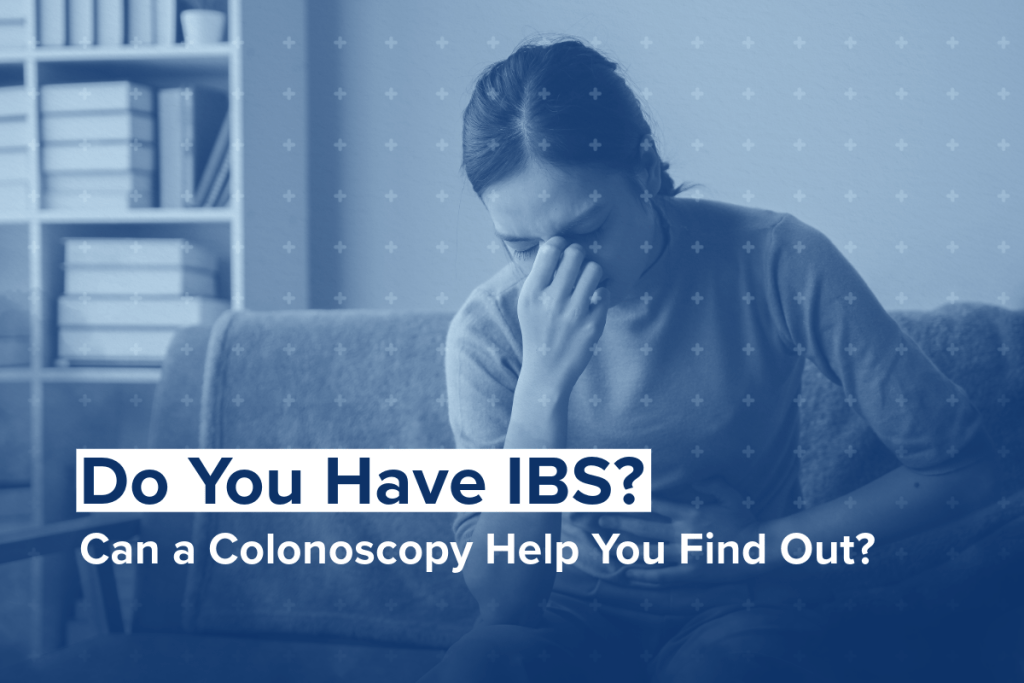Table of Contents
- What is IBS?
- Common Symptoms of IBS
- Ruling Out Other Conditions with a Colonoscopy
- When Should You Have a Colonoscopy?
- Don’t Let Lack of Insurance Stop You
Irritable bowel syndrome (IBS) isn’t just about occasional bloating or discomfort after a meal—it’s a chronic condition that can make daily life challenging. Surprisingly, IBS affects between 25 to 45 million people in the U.S. alone. That’s a massive number of individuals dealing with persistent abdominal discomfort, unpredictable bowel habits, and the stress that comes with managing these ongoing symptoms.
When it comes to diagnosing IBS, though, a colonoscopy won’t provide any direct answers. IBS doesn’t cause visible changes to the structure or tissue of the colon, which is what a colonoscopy is designed to detect. A colonoscopy is used to identify structural abnormalities like polyps, tumors, or inflammation.
So, if a colonoscopy can’t detect IBS, why might your doctor still recommend one if you’re experiencing IBS-like symptoms? Let’s explore that.
What is IBS?
IBS, or irritable bowel syndrome, is a disorder that affects how the large intestine functions. Unlike some other gastrointestinal conditions, there’s no visible cause—no infection, no structural abnormalities. That’s what makes it a functional gastrointestinal disorder, meaning it’s all about how the gut works, not what’s physically wrong with it.
Common Symptoms of IBS
- Abdominal pain or cramping
- Bloating and excessive gas
- Heartburn
- Changes in bowel habits: diarrhea, constipation, or a frustrating mix of both
- An urgent need to use the bathroom

Ruling Out Other Conditions with a Colonoscopy
One of the main reasons a doctor might order a colonoscopy for someone with IBS-like symptoms is to make sure something more serious isn’t at play. IBS shares symptoms with several other conditions that can affect the digestive system, including:
- Inflammatory bowel disease (IBD): Unlike IBS, IBD, which includes Crohn’s disease and ulcerative colitis, causes visible inflammation in the intestines. A colonoscopy can easily detect this.
- Colon cancer: Early-stage colon cancer can present with symptoms similar to IBS—changes in bowel habits, abdominal pain, and even blood in the stool. A colonoscopy is key for identifying polyps or cancerous growths.
- Celiac disease: This autoimmune disorder causes an immune response to gluten, leading to digestive issues often confused with IBS. While celiac disease is usually diagnosed through blood tests and biopsies, a colonoscopy can help rule it out.
- Diverticulitis: This condition involves inflammation or infection of small pouches (diverticula) in the intestines, leading to symptoms like abdominal pain and bloating, which can look a lot like IBS.
By ruling out these more serious conditions, a colonoscopy allows your doctor to focus on managing and treating your IBS.
When Should You Have a Colonoscopy?
While a colonoscopy can’t diagnose IBS, it’s still a crucial diagnostic tool. You should consider having one if you’re experiencing:
- Unexplained weight loss
- Blood in your stool
- A family history of colon cancer
- Persistent abdominal pain that doesn’t improve with diet or lifestyle changes
If you’re over 45 or have a higher risk for colon cancer, regular colonoscopies are recommended.
Don’t Let Lack of Insurance Stop You
Worried about the cost of a colonoscopy? You’re not alone. Many people avoid getting screened because of the price tag, especially if they lack insurance or are paying out-of-pocket.
ColonoscopyAssist provides affordable options for uninsured or underinsured patients, ensuring that financial concerns don’t prevent you from getting the care you need.
While a colonoscopy can’t detect IBS, it’s still an essential tool for ruling out more serious conditions that could be causing your symptoms. If you’re dealing with digestive issues, don’t wait—talk to your doctor about whether a colonoscopy is the right step for you.


























